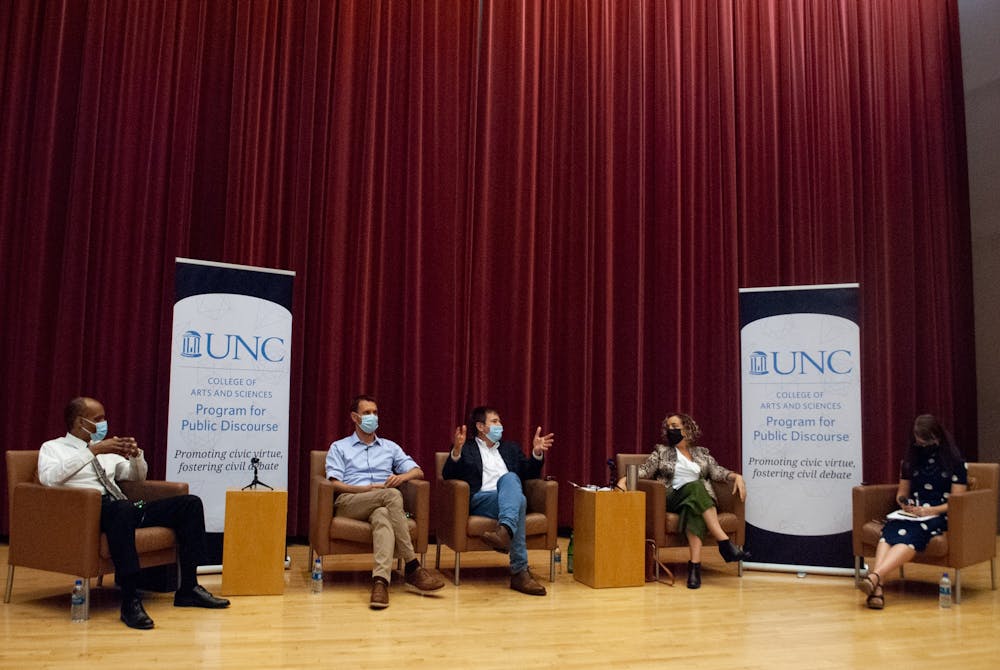Students, faculty and members of the UNC community gathered Tuesday in anticipation of the UNC Program for Public Discourse's (PPD) event: Democracy and Public Discourse.
The event, co-sponsored by the General Alumni Association and Carolina Public Humanities, was hosted in-person and via livestream. It consisted of a panel of UNC faculty members from four departments that addressed the state of public discourse from their respective academic fields.
Panelists included:
- Claude Clegg, chair of the UNC Department of African, African American and Diaspora Studies
- Kurt Gray, associate professor in psychology and neuroscience, director of the Deepest Beliefs Lab and director of the Center for the Science of Moral Understanding
- Marc Hetherington, professor of political science
- Shannon McGregor, assistant professor at the Hussman School of Journalism and Media and senior faculty researcher for Center for Information, Technology and Public Life
“PPD is another way Carolina is preparing leaders of tomorrow right now," Sarah Treul, faculty director, said in a statement. "Providing them opportunities to hone and practice communications skills that make them better leaders and citizens."
Nora Hanagan, teaching assistant professor and the events coordinator for PPD, said the Democracy and Public Discourse panel was a continuation of programming that was implemented after the 2020 election. Hanagan said PPD leadership decided that this year’s focus would be democracy and public discourse.
The Democracy and Public Discourse panel served as a broad, interdisciplinary introduction to highlight some of the University’s leading experts in the various departments, and the research that is happening on-campus, Hanagan said.
Molly Worthen, a history professor and the event's moderator, opened up the conversation by posing the question: “Is public discourse broken?” and, “if so, what is the number one reason it’s broken?"
It's unusual for faculty from different disciplines to get to talk in a sustained way about a subject of mutual interest, Worthen said.




